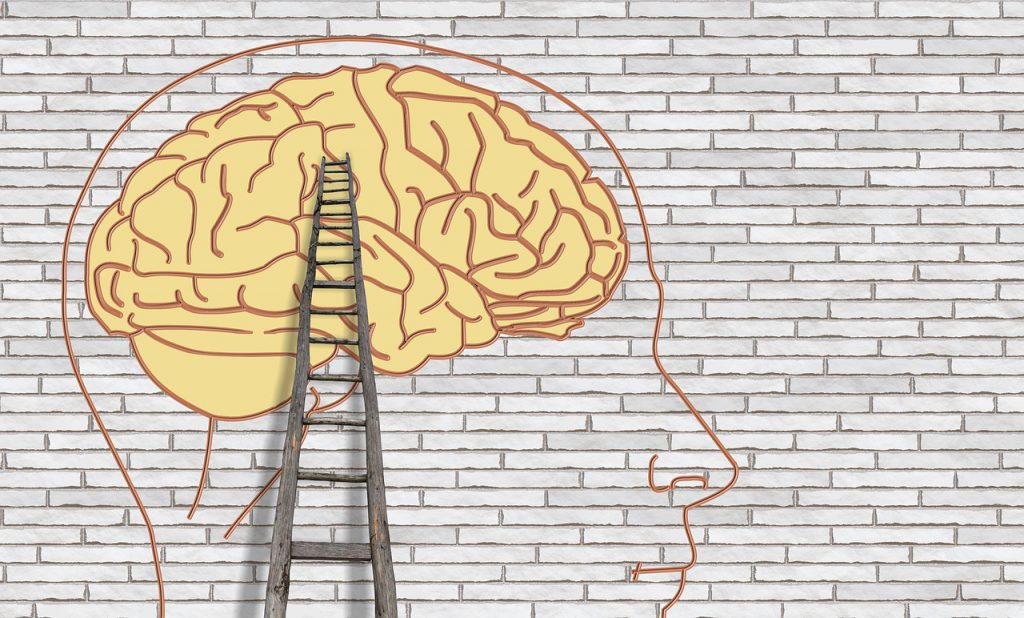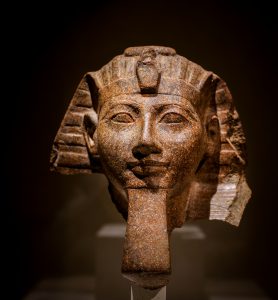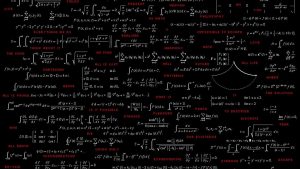“It has become a cliché to describe the human mind as at once the most complex and the most intriguing entity in the universe.”1
Every human mind is infinitely complex, but the complexity of a savant’s mind surpasses all that we know. A savant is a person who has extremely exceptional capabilities in a certain area that was originally always accompanied by some form of a mental disability. The first descriptions of savant syndrome appear in 1789. However, the term “savant” was not applied to these people who displayed unusually exceptional talent until around 1887 when J. Langdon Down, a British doctor who also discovered Down syndrome, described ten people with savant syndrome as “idiot savants.” At the time of its discovery, this was the most common term used when referencing these extraordinary people; however, Dr. Down did not like using this term and even apologized for using it. The term “savant” is derived from the French word savoir which means “to know.” To remove the negative connotation from the term, “idiot savant,” and create a way to refer to it that is not offensive, the term “savant syndrome” was adopted.2
In 1887, Dr. Down gave a series of lectures to The Medical Society of London regarding the ten cases he had studied during his thirty years of experience as a Superintendent of the Earlswood Asylum. Within these cases, there were many different characteristics of the newly discovered syndrome including extraordinary talent in musical, mathematical, artistic, or mechanical skills, all of which were accompanied by an unusually strong memory as well as with a disability. Doctors at the time were fascinated by the extreme contrast of superiority and disability in each affected individual. Many suggest that in savants with autism, the combination of their intense attention to detail can predispose them to develop specific talents.3

In some cases, savants have extraordinary talent in multiple areas instead of just one. Kim Peek was born on November 11th, 1951, in Salt Lake City Utah. As a child, many health professionals advised his parents to have Kim put in an institution because of a disability he had relating to congenital brain abnormalities.4 He was born with macrocephaly, a condition where the human head is abnormally large, as well as with damage to the cerebellum, and agenesis of the corpus callosum, a rare birth defect in which there is a partial or complete absent of the corpus callosum. He also had severe brain damage, but yet he had the ability to read two pages of a book at once, one with his left eye and the other page with his right eye. This phenomenon can be explained by Peek’s agenesis of the corpus callosum, because the corpus callosum’s main function is to physically connect and integrate motor, sensory, and cognitive performances between the brain’s two hemispheres. In other words, the corpus callosum allows the two halves of the brain to work together, but because of Peek’s condition, the two halves of his brain are able to accomplish different tasks at one time.5
However, as he continued to grow up, his parents discovered Kim’s exceptional factual recall in “history, geography, literature, music, sports, science and religion,” and many other areas. He remembers every detail about 12,000 books that he has read. He also has many other abilities including knowing what day of the week any given date falls on. Although he was unable to complete many daily tasks such as buttoning his shirt or walking properly without any assistance, he has these extremely rare and impressive abilities. Kim Peek is known by many as “a living Google” as well as the “megasavant.”6

Kim Peek later became the inspiration for the movie Rain Man, which was released in 1988. The main character in the movie, Raymond Babbitt, is a savant who also has autism.7 Rain Man is one of the most well-known movies where a main character has savant syndrome. As this condition became better known throughout the world, savant syndrome has been seen more often in the media, including in movies or television shows. Other movies that display various forms of savant syndrome include The Woman Who Willed a Miracle, Beautiful Minds, and Quantum Apocalypse. The Good Doctor is an American series based off of a South Korean series of the same name that is centered around a savant, Shaun Murphy, who is an autistic surgical resident with various extraordinary abilities. The show focuses on how Dr. Murphy’s savant capabilities, including photographic recall and the recognition of nearly every detail, contrasts and integrates with his extreme lack certain basic social skills including empathy.

The more that savant syndrome is portrayed in the media, the more often there are false assumptions made about it. The main assumption made about savant syndrome is that everyone who has it also has to have a form of autism. Many people who have savant syndrome do have autism, but there are other conditions or certain types of disorders that are seen with it. Although as many as one in ten people with autism also have savant syndrome, and approximately 50% of savant cases occur alongside a form of autism the other 50% of individuals with savant syndrome have it alongside other disabilities.8 It is also seen more often in males “by an approximate 6:1 ratio.”9 In rare occasions, savant syndrome can actually be acquired as opposed to the individual being born with it.
One of the most well-known “acquired savants” is Tony Cicoria, who was born in 1952. Cicoria is an orthopedic surgeon as well as the Chief of Orthopedics at Chenango Memorial Hospital located in Norwich, New York. In 1994, Cicoria was involved in an accident that many individuals have an irrational fear of — being struck by lightning. He was outdoors and had just hung up a public telephone. He was standing nearly a foot away from a metal pole, but then was struck by lightning. During the incident, Cicoria recalls having an out-of-body experience, seeing his own body surrounded by a “bluish-white light.” He was resuscitated at the scene of the event and was brought to the hospital, suffering from burns on his face as well as on his left foot, where the bolt had exited his body. At this time, nothing particularly unusual was found in the several tests ran by the doctor including an EEG (a test that detects electrical activity in the brain), an MRI (an imaging technique that forms pictures of the anatomy and physiological processes of the body), and a neurological exam. Around two weeks later, however, Cicoria “began to have an insatiable desire to listen to classical piano music.” A short time after acquiring a piano, Cicoria had a dream that he describes as being an “out-of-body experience.” He vividly saw himself playing piano music in a concert hall and later he realized that the music he was playing was not someone else’s music being played: it was his own.10
Cicoria states that ever since this moment, every time he sat to play at the piano, the “music would start to play in [his] head like a recording.” From then on, playing the piano and writing new music was the only thing that he could think about. Prior to being struck by lightning, Cicoria did not have any particular interest in music at all. Growing up, the only music he had an interest in was classic rock. In fact, he was enrolled in piano lessons as a child and remembers being very reluctant and disinterested in playing. Now, other than his job as an orthopedic surgeon and being a father, the piano was all he wanted to focus on and he found himself playing the piano until his “eyes could no longer focus.” Many years later in 2008, Tony Cicoria debuted his very first public concert in New York. To this day, his passion for playing the piano is still evident and he continues to compose original music.11
Over the years, many different approaches have been taken to understand the development of savant syndrome. Many psychologists and other professionals have discussed the impact of nature versus nurture on the formation of savant-like talents. According to an article written by Leon K. Miller, the mere existence of savant syndrome “has been used as evidence for both ‘nature’ and ‘nurture’ positions in the debate about the origins of exceptional skill.”12 For instance, characteristics of savant syndrome can be present from the beginning of an individual’s childhood which would provide evidence for the viewpoint that this level of talent is mostly developed through nature. However, there have been cases of savants who obsessively practice their skills over the course of their lives which provides evidence that this level of talent is developed through nurture.13 These concepts become even more complex when taking into account situations such as Tony Cicoria’s; the specific reasons for the development of savant syndrome, whether it be due to nature, nurture, or a mixture of both, are still being studied to this day.

Since the first discussions of its discovery in 1887, much progress has been made by medical professionals in the understanding of savant syndrome. Whether it is present in an individual since birth, as seen in Kim Peek’s case, or acquired through damage to the CNS or an accident, as seen in Tony Cicoria’s case, it continues to be a phenomenon that repeatedly shocks the world. Dr. Down was incredibly dedicated in the discoveries he made regarding Savant syndrome as well as Down syndrome and many learning disabilities. His house, which also doubled as the institution in which he worked during the 1800s, has since been converted into the Langdon Down Museum of Learning Disability, which today exhibits much of Dr. Down’s work and discoveries. His dedication toward studying savant syndrome has inspired research to continue to this day.
- Neil Smith and Ianthe-Maria Tsimpli, The Mind of a Savant (Massachusetts: Basil Blackwell Inc., 1995), XV. ↵
- Laurence Arnold, “The Social Construct of the Savant,” Autonomy, the Critical Journal of Interdisciplinary Autism Studies 1, no. 2 (2012): 1-6. ↵
- James E A. Hughes, Jamie Ward, Elin Gruffydd, Simon Baron-Cohen, Paula Smith, Carrie Allison, Julia Simner, “Savant syndrome has a distinct psychological profile in autism,” Molecular Autism 9, no. 1 (2018): 1-18. ↵
- Darold A. Treffert, Islands of GENIUS (Philadelphia: Jessica Kingsley Publishers, 2010), XIII. ↵
- Darold A. Treffert, “The savant syndrome: an extraordinary condition. A synopsis: past, present, future,” Philosophical transactions of the Royal Society of London 364, no. 1522 (2009): 1351-1357. ↵
- Darold A. Treffert, Islands of GENIUS (Philadelphia: Jessica Kingsley Publishers, 2010), XIII. ↵
- Darold A. Treffert, Islands of GENIUS (Philadelphia: Jessica Kingsley Publishers, 2010), XIII. ↵
- Darold A. Treffert, “Savant Syndrome: Realities, Myths, and Misconceptions,” Journal of Autism and Developmental Disorders 1, no. 1 (2014): 564-5571. ↵
- Darold A. Treffert, “The savant syndrome: an extraordinary condition. A synopsis: past, present, future,” Philosophical transactions of the Royal Society of London 364, no. 1522 (2009): 1351-1357. ↵
- Tony Cicoria, “The Electrifying Story of The Accidental Pianist & Composer,” Missouri Medicine: The Journal of the Missouri State Medical Association 111, no. 4 (2014): 308. ↵
- Tony Cicoria, “The Electrifying Story of The Accidental Pianist & Composer,” Missouri Medicine: The Journal of the Missouri State Medical Association 111, no. 4 (2014): 308. ↵
- Leon K. Miller, “What the Savant Syndrome Can Tell Us About the Nature and Nurture of Talent,” Journal for the Education of the Gifted 28, no. 3-4 (2005): 361-362. ↵
- Leon K. Miller, “What the Savant Syndrome Can Tell Us About the Nature and Nurture of Talent,” Journal for the Education of the Gifted 28, no. 3-4 (2005): 361-362. ↵




50 comments
Paula Ferradas Hiraoka
I’ve never knew about the savant syndrome or even heard of it until I read this article. Rather than seeing this as a syndrome, I think it’s quite a skill. It also impresses me the comparison between males and females, being this a 6:1. This article helped me learn about this syndrome and helped me expand my memory while learning about this. Overall, nice work and amazing article!
Irene Urbina
This was a really interesting article to read! This is my first time hearing about the savant syndrome. It is so fascinating to see how people with disabilities can develop the savant syndrome and present extremely impressive abilities. It is good that media show people with savant syndrome, but it would be nice if they show people with other type of disabilities to stop the misconceptions that only people with autism can be savant. I also found intriguing how the savant syndrome can also be acquired, such as the case of Cicoria. This article helped me understand what the savant syndrome is perfectly.
Madeline Emke
I found the article really engaging and educational. I had only heard of the term “savant syndrome” before and I never truly understood what it meant. The article clearly articulated and corrected misconceptions in order to accurately describe what savant syndrome is. Additionally, the author wrote the article in a manner that allowed for easy reading while gaining a new understanding.
Eva Lizarraga
Thank you for this well-written explanation! I was unaware of the history behind the term, and was only really familiar with the concept from a book I read a long time ago. Tony Cicoria’s story was especially interesting to me-it seems unbelievable that the effect of a lightning bolt to the brain could result in unexplainable musical talent. My sister has disabilities that prevent her from speaking, so this article makes me wonder what kind of phenomenal activity might be going in her brain, as well as other people who cannot speak and share what’s going on in their minds.
Keily Hart
This was a very well written and interesting article. I did not know what savant syndrome was prior to reading this article but it’s a super interesting thing. I have watched the Good Doctor but never knew that he had savant syndrome. It’s incredible to think that so many people who are typically viewed as less have such extraordinary talents.
Diego Oviedo
The article was very interesting and showed that Savant Syndrome is not a disability but rather a talent and almost as a gift. It’s fascinating how the individuals who have this syndrome are able to have an immense amount of knowledge and be able to retain every spec of it without effort. It leads one to think what if these individuals could help with innovations and other aspects of the world that could fix what we have caused.
Davis Nickle
Before reading this article I had only heard of savant syndrome once before. However I had really only heard it in name alone, this article definitely helped clarify what savant syndrome actually is, instead of what popular perceptions of it are. I also found it intriguing that Cicoria developed his syndrome after being struck by lightning, I did not know it could be aquired.
Franchesca Baldwin
This was a really fascinating article to read, and I wish more were known about the syndrome. It’s curious that savant syndrome is seen far more in males than females (a 6:1 ratio). I wonder if it has anything to do with biology, or if it is simply because globally women who are geniuses tend not to be as noticed?
Savannah Palmer
I was never fully aware of savant syndrome until I read this article. It is truly magnificent that people have such a large knowledge capacity. Personally, I don’t view savant syndrome as a disability, but almost a skill and talent. People who are able to recall so much knowledge should use this talent to help innovate and create. This article helped to portray the value of human knowledge through savant syndrome.
Kayla Mendez
I loved the way you articulated this article, it shows serious knowledge and dedication to the psychology field. I am also a psychology major, and I appreciated the time you took to correct the popular misconceptions of savant syndrome. Ironically, I just watched a documentary about a set of female twins, named Flo and Kay Lyman who were autistic and savant. It really informs people about the reality of being savant with autism. Although the twins had an amazing memory, which the public would often test for entertainment, they still dealt with the daily issues. They couldn’t take care of themselves, and their sister (their caretaker), had unfortunately died, leaving them without a home. I really suggest watching it, to anyone who has been intrigued by the article!
Ratna Ramaraju
What an interesting article! I always knew that individuals with autism and other disabilities could potentially be high-functioning, but I never knew the name for it. This article certainly helps dispel the myth that disabilities automatically impede and prohibit a person’s intelligence. I actually watched the movie “A Beautiful Mind” in my AP Psychology class during my senior year of high school and found it fascinating. Some of the world’s most intelligent people have conditions we often deem as disabling, yet their impact and contributions to the world of science, mathematics, and more, are all irreplaceable. Thank you for writing such a great article, Isabella!